Home / Products
Products

Structural steel
A-36 Commercial Steel: General purpose carbon steel alloy used for structural applications
1018 Steel: Low carbon steel (0.18%), easily weldable and inexpensive; however, it also has low resistance. Generally used for the manufacture of tubes, chains, wires and nails
1045 Steel: Medium carbon steel, stronger than 1018 but not as easy to weld. Generally used for the manufacture of crankshafts, mechanical parts with heat treatments, screws and shafts.
Commercial steel A-516 gr 70: Fine-grained steel, suitable for pressure vessels operating at moderate and low temperatures, where toughness and weldability properties are important, properties achieved through the normalizing process.
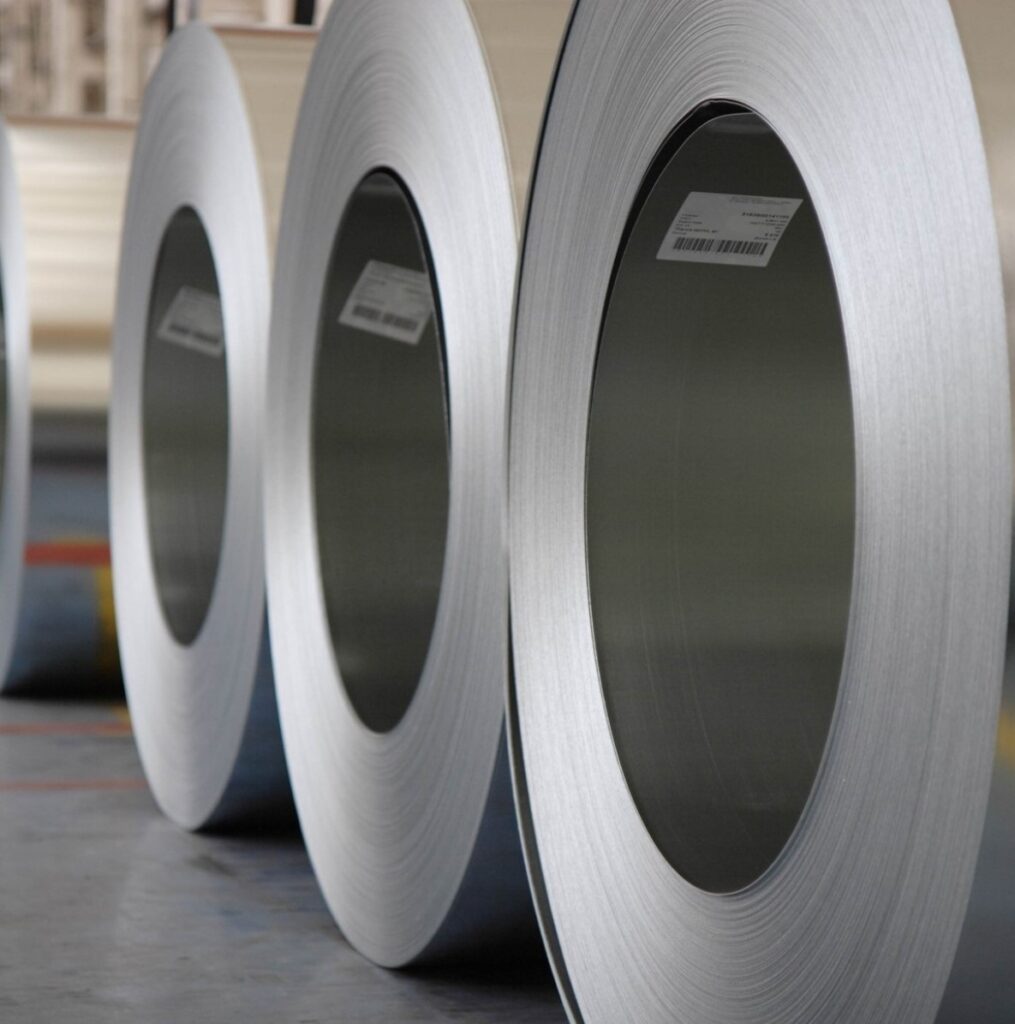
Stainless steels
304 Stainless – A general purpose austenitic stainless steel, non-magnetic in the annealed state and can only be cold hardened. Its use is mostly for the food industry due to its resistance to corrosion.
316 Stainless: Uses for this grade of stainless steel are in the most corrosive conditions such as food and beverage processing, chemical processing, uses in agriculture, and the pulp and paper industry. Type 316 is stainless steel, it is marine grade and is used for marine applications. In addition, it is the version that has less carbon, which allows easier welding.
201 Stainless: It is known as a substitute for 304 steel, but with lower levels of nickel. Normally used in domestic appliances, ornamentals, stairs, furniture, automotive structure, or in other applications of structural use (due to its hardness) with limited exposure to corrosion.
202 Stainless: It is also known as a substitute for 304 steel, with a higher percentage of nickel than 201. Used in household appliances, ornamentals, ladders, hooks, products for extra deep drawing, or in other applications with limited exposure to corrosion. Nickel percentage is 4.00 – 6.00. Due to its identical mechanical response to the classic AISI 304, it is the best candidate to replace it in various applications.
304 Stainless – General purpose austenitic stainless steel, non-magnetic in the annealed state and can only be cold hardened. Its use is mostly for the food industry due to its resistance to corrosion.
316 Stainless: Uses for this grade of stainless steel are in the most corrosive conditions such as food and beverage processing, chemical processing, uses in agriculture, and the pulp and paper industry. Type 316 is stainless steel, it is marine grade and is used for marine applications. In addition, it is the version that has less carbon, which allows easier welding.
420 Stainless: A high quality mold stainless steel used in applications that require a good combination of corrosion resistance and wear resistance. It is vacuum remelted to achieve uniformity in its microstructure and levels of microcleanliness required for critical applications and a mirror-polished finish.
430 Stainless: Non-heat treatable that combines good corrosion resistance and forming characteristics with useful mechanical properties. Its ability to resist nitric acid attack allows it to be used in specific chemical applications, but its greatest application is in the manufacture of trim components.
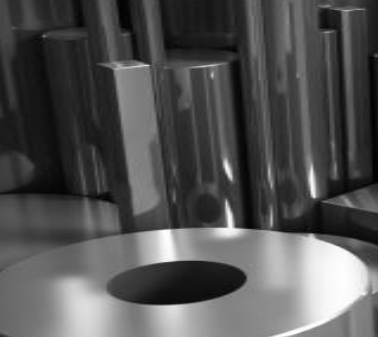
Aluminum
Aluminum 6061: Hardened aluminum alloy, it has good mechanical properties and for use in welding, one of the most common alloys for general use, especially high-strength structures that require good behavior against corrosion, trucks, boats, furniture and pipes.
Aluminum 7075: Zinc-aluminum alloy, strong, with good fatigue resistance against other metals and easy to machine, however, it is not weldable and has poor corrosion resistance
Aluminum 3003: Aluminum with low manganese content. Its applications are for kitchen utensils, containers, decorative pieces, in general uses with low mechanical resistance.
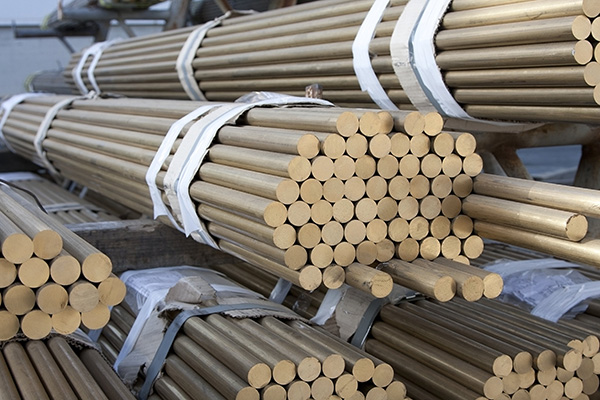
Brass
Brass: It is an alloy of copper with zinc, the proportions may vary depending on the characteristics that are sought in the material.
The main applications are in low friction uses such as locks, valves, plumbing, electrical applications and extensively in musical instruments, as well as low cost cymbals due to their acoustic properties.
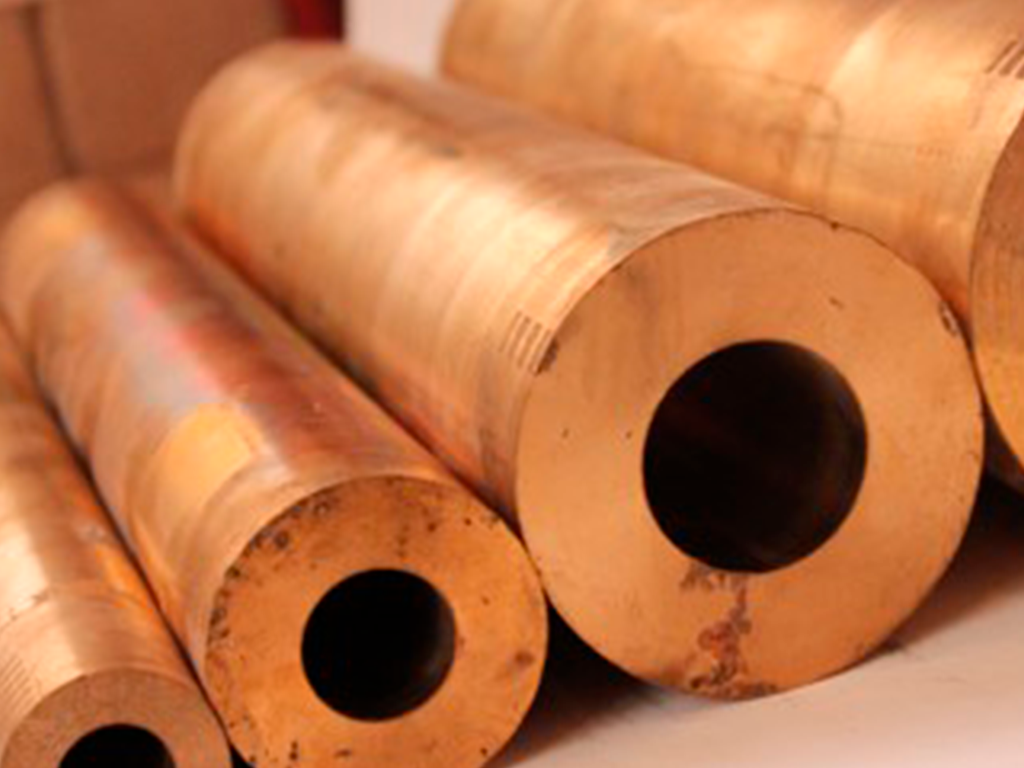
Bronze
Bronze 64: High lead bronze, excellent lubricating bronze. Used for heavy work under pressures and high speeds, pillow blocks and bearings used in machines. Tools, rolling mills, cranes, dredges, mills, trapiches and crushers
Bronze 62: High tin bronze, highly resistant to wear and attack by chemical elements. Used in gears, crowns, cylinder linings, calenders, nuts, spindles
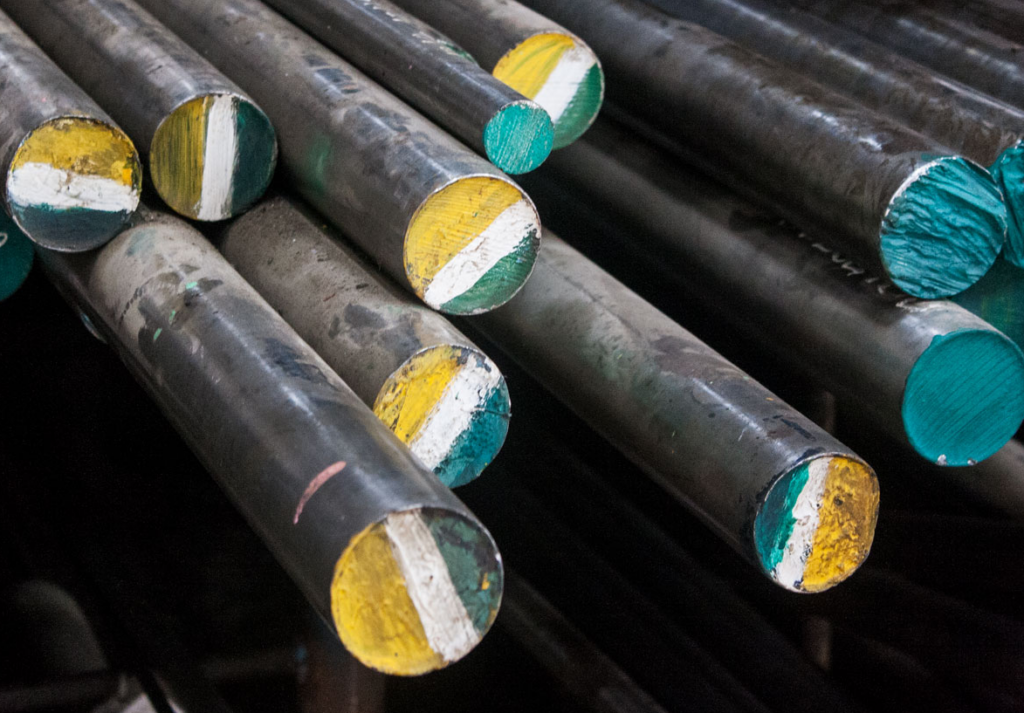
Special Steels
4140 Steel: is a high-alloy tool steel designed to have good strength and toughness characteristics, such as limited corrosion resistance. It is often used in the manufacture of drill holders, clamps, gauges, jigs, molds, and dies.
9840 Steel: Good performance Chrome-Nickel-Molybdenum machinery grade steel. Its properly balanced alloy elements make it highly resistant to fatigue. Its typical applications are in: General machinery parts, crankshaft, gears, axles, connecting rods, mold holders and cores for the plastics industry.
Steel 8620: Nickel-Chromium-Molybdenum machinery grade steel for hardening. It offers very good surface hardness and great core toughness. The cementing process is applied to increase the carbon content on the surface and make it harder than the core. Its applications are: pinions, gears, endless screws, bolts, pistons, shafts
D2 Steel: High carbon and chrome steel. Dimensionally stable with excellent shear performance and wear resistance. Its common uses are: stamping and forming, shades and punches, stamping and perforation, rollers, fine stamping, dies for coining, threading tools, wear parts, shears, plastic injection, blades for plastic mills
H13 Steel: SISA H13 steel provides a good balance of toughness, high resistance to thermal shock cracking, and resistance to tempering, along with moderate wear resistance. Tools made of SISA H13 steel can be used at temperatures up to approx. 1000°F (540°C) with brief exposures up to 1100°F (595°C), ideal for forging dies, hot extrusion tooling and die casting molds. Its typical applications are: extrusion dies for light alloys, extrusion sleeves, die casting tools, compensation punches and dies, hot cutting blades, plastic moulds, mandrels.

Plastics
- Natural: Mechanical
- Black: Super Lubricated
- Green: Extra Lubricated
- Blue: Heat stabilized
Acetal: It has great mechanical resistance, structural rigidity, dimensional stability and resilience. It retains these properties even in the most adverse conditions such as: high temperatures, extreme humidity, presence of solvents and chemical agents, such as: hydrocarbons, alcohols, ethers, etc. Supporting, in addition, high loads in intermittent and prolonged periods.
Acetal outperforms nylon because it absorbs only trace amounts of moisture, including submerged applications. In addition, it is approved by the FDA for contact with food.
UHMW: Polyethylene, with ultra-high molecular weight, is a thermoplastic material used for the manufacture of semi-finished products, it has excellent electrical insulation qualities, and is practically insoluble in all types of solvents. Its uses are for the construction of parts that are subjected to mechanical friction.

